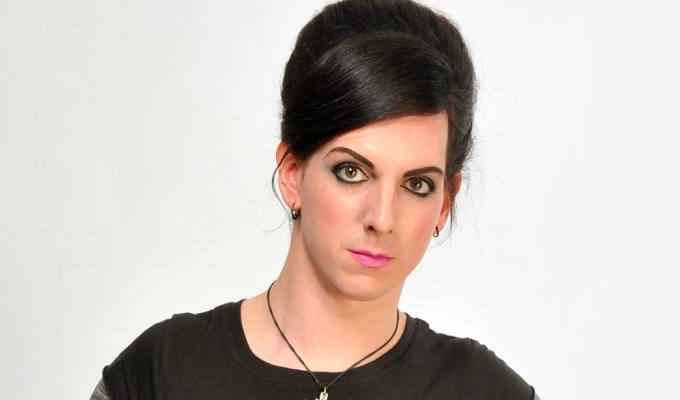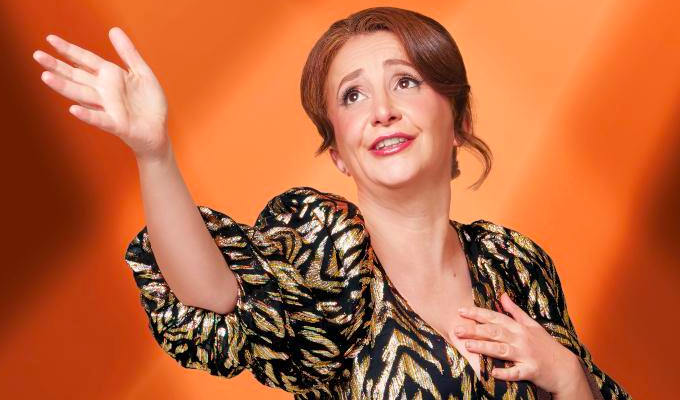The Hollywood hustle
Yianni Agisilaou files a dispatch from the LA comedy scene
‘How long have I got left?’ the act on the stage enquires. A man in the second row glances at a countdown timer on his phone and responds clinically, ‘27 seconds’. ‘27 seconds…’ the act confirms, his eyes move towards the ceiling, pondering.
I wonder what he’s pondering. Which of his myriad 27 second jokes to do? How to engineer a big finish from a standing start in less than the time it takes to watch a TV commercial. Or whether, 2 minutes and 33 seconds into his set he’s out of his depth and attempting 3 minutes was overextending himself in the first place?
I’m at Flappers Comedy Club in Burbank, Los Angeles. I’m on holiday in California but I’ve come to a comedy club because one of my girlfriend’s friends is performing. Welcome to the open mic scene, LA-style, a place where a compere is a luxury, paying for the privilege of stage time is more likely than playing to paying punters, and you’ve got three whole minutes to set yourself apart from the rest of the branded comedy cattle being herded through the stage.
As there’s no compere, a guy in the audience who is the closest thing the gig has to a MC (let’s call him the ‘announcer’) reads the names of the next three comedians on the bill before each act. This is so you have a warning before your glorious stagetime, at six and three minutes. Then you’re on and three minutes later you’re off. It’s cutthroat stuff, and nights can continue in this vein for over two hours, without an interval.
This format has real consequences for the comedy presented. No one says hello, that’s a luxury that vanished around the same time as the compere. Stories are thin on the ground as there isn’t enough time to build up a narrative. And it’s generally patchy, stereotype-heavy stand up. In half an hour, I heard two ‘eating dogs’ jokes from Asian comedians and countless black acts do variations on ‘black people do this, white people do this’.
There is also a tension, an urgency to impress and impress QUICKLY that pervades all performances. The irony, of course, being that comedy predominantly works best when the tension resides in the audience and the calm, confident authority sits with the performer. Flappers was a good name for the club, because flapping is exactly what each act is doing; flapping about for laughs like a hummingbird on speed.
The gig reminds me of every time I return for another pointless open spot at the Comedy Store and my irrational desire to try to fit as much as possible into the ten minutes so I can impress. Every time, my rushed performance suffers accordingly.
Speaking to a few of the acts, they tell me that this gig is unusual as you don’t have to pay to get on. At other open mics you can pay anywhere between $5 and $20 to get on, or be required to bring up to five friends who all have to buy two drinks each. And that might only secure you 5 minutes stagetime. I guess promoters can demand whatever the market will bear but to me it’s not what comedy is about. Ayn Rand might have been a good businesswoman, but I bet she wasn’t very funny.
The next day I’m walking down Hollywood Boulevard with my girlfriend. Here, artists of all persuasions try to peddle you their CD or DVD.
After buying a documentary about old school rappers giving their opinions on more contemporary hip-hop I meet an American comedian named Tyrell Robinson (not his real name) selling his DVD. Tyrell is your archetypal ‘cool African-American comedian’, baseball cap, slick sunnies, baggy trousers and funky trainers. Halfway through his sales pitch I mention that I’m a stand-up from Australia and he immediately tells me that he’s gigged with Hughesy (Dave Hughes)
We swap stories. He’s originally from Baltimore, but he’s living in Hollywood now. He’s Eddie Griffin’s opening act and not only is he being mentored by Eddie, but also by Eddie Murphy’s brother Charlie. He’s going to be on TV soon and he doesn’t give a fuck that a lot of bookers don’t give him the time of day now because once his shit hits on TV they will all ‘be on his dick’.
We chat for a while about comedy, about getting yourself seen and whether I should move over to the States (In his opinion I’d be better off in New York than LA). I like Tyrell. I admire his hustle. There’s something genuinely inspiring about someone tenaciously standing on the street promoting themselves. It’s VERY American. I especially admire it because I can’t see myself doing it even though I know it would probably be extremely helpful to my career. In the end I buy his DVD for $5 and I genuinely look forward to watching it when I have the time.
A few days later that time comes. I slide the DVD into my laptop and the menu screen comes up. There are two options, I can either watch the R-rated version or the PG-rated version. It bemuses me that ‘soon to have Hollywood on his dick’ Tyrell has included a PG-rated version. This is also VERY American.
I’m feeling dangerous, so I say ‘fuck it and click on the R-rated version. What follows is a few good jokes, but a large case of style over substance. Also, I won’t say I feel shortchanged, but with the R-rated version clocking in at a mere three Flapper’s sets long and its cleaner cousin at two I can’t help but think I’m glad I didn’t pay Tyrell the $10 he originally asked.
The American approach to comedy seems to mirror the American approach to health insurance. It’s a dog-eat-dog free-for-all where the people at the bottom suffer the most and you have to pay for absolutely everything.
I know that I was only in LA for ten days, and I know I only went to two gigs. But from that experience, and from talking to some of the local comedians, I return to the UK very happy that I have access to the British comedy scene.
We can bitch all we want (and we’re comedians, we certainly will) but we can be grateful for the extremely vibrant, diverse and plentiful scene we all enjoy. We should also appreciate the fact that the majority of gigs are set up in a way that honours the art form and nurtures stand-up for stand-up’s sake rather than for a secondary objective, such as funneling talent into television. We should take great care to preserve all that is good about it, including cherishing the vital role good compering plays and resisting ‘pay-to-play’ gigs where the comics fund the show.
And just to be clear that I’m not some thoughtless negative Nelly who thought the entire LA scene sucked, I performed at Set List the night before I left, and it was one of the best things I’ve done in 12 years of comedy. There is also a thriving improv scene which we would kill to have in London. But that’s a different story for another time…
Published: 26 May 2012






